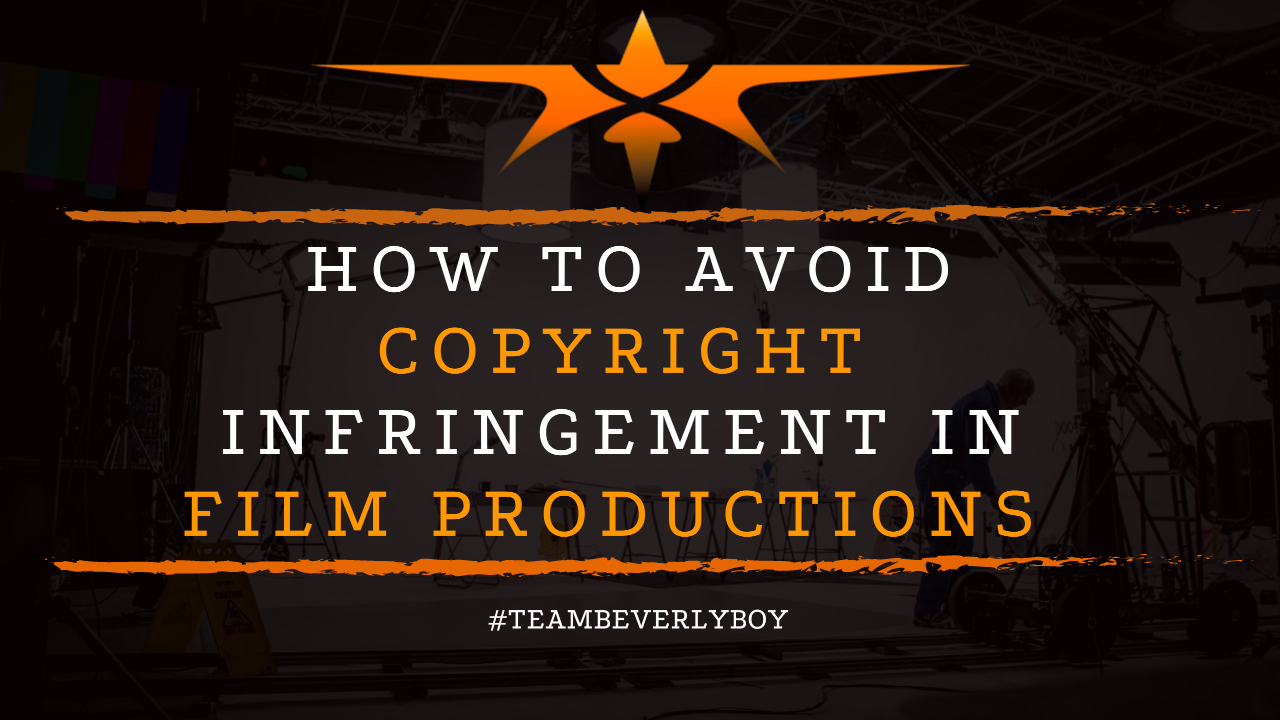
How to Avoid Copyright Infringement in Film Productions
Are you a new filmmaker that’s just learning the ropes of film production? Are you a screenwriter that’s trying to take all necessary precautions to avoid copyright infringement in film projects that you’re involved in? As a filmmaker, much of the time spent collaborating on projects is focused on taking the necessary steps to avoid copyright infringement. While repurposing or otherwise incorporating the previously copyrighted works of others into the projects that you’re involved in. And it’s hard!

A single copyright infringement case can literally be devastating for you as a filmmaker. Especially if you don’t have insurance against these types of things. Or if your insurance doesn’t cover the lawsuit for some reason.
That’s why it’s very important for filmmaker’s like yourself! To take all necessary precautions to avoid copyright infringement at all costs. But how?
Use Original Work Whenever Possible
We realize that much of the creative inspiration that filmmakers have will come from another work that they encountered in the past. But it’s still important to do your best to use only original work whenever possible.
The more you can use original work in your productions, the lower your risk of copyright infringement in film projects that you work on will be.
Seek Licenses & Permission
If you absolutely must use copyrighted material such as a song or a particular story. Or some other work that has been copyrighted by another creator. Then you’re going to need to learn about permissions.
You’ll need a license to use music or other copyrighted material in your film projects in order to avoid copyright infringement.
Acquiring a license to work isn’t necessarily hard, but it can be time consuming and costly. If you can’t afford the license, or you’re having trouble finding the original copyright owner to ask for permission.
Consider open source works, those from the public domain, or royalty free works. All of these can provide a lot of options for a filmmaker that’s working with limited time or budget on their side.
Never Assume a Work is Open Source or Public Domain
Just because you think that a song is old and that the copyright has expired. Or that a movie clip is old and is in public domain. Don’t assume! You should never, ever assume that a work no longer has copyright.
In fact, if you were to have a copyright infringement accusation brought forth against you for a film project that you worked on. And you claimed that you “assumed” the work was public domain.
You would most certainly lose the case! You must be diligent in your efforts to determine the ownership of a copyright. And to seek permission and may not ever just assume that the work was free for the taking.
Always Get Film Clearance
Before you distribute your work make sure that you’re using a professional to apply for film clearance. A film clearance package will provide you with details on any and all works that may be included in your film which might be protected by a copyright.
Including areas in which you may not have realized the risk for copyright infringement in film projects that you worked on.
With film clearance, you can rest assured that your errors and omissions insurance will cover any potential lawsuit or accusations that come up for copyright infringement and that you’ll be fully protected. It’s all part of avoiding copyright infringement for film projects that you work on!



